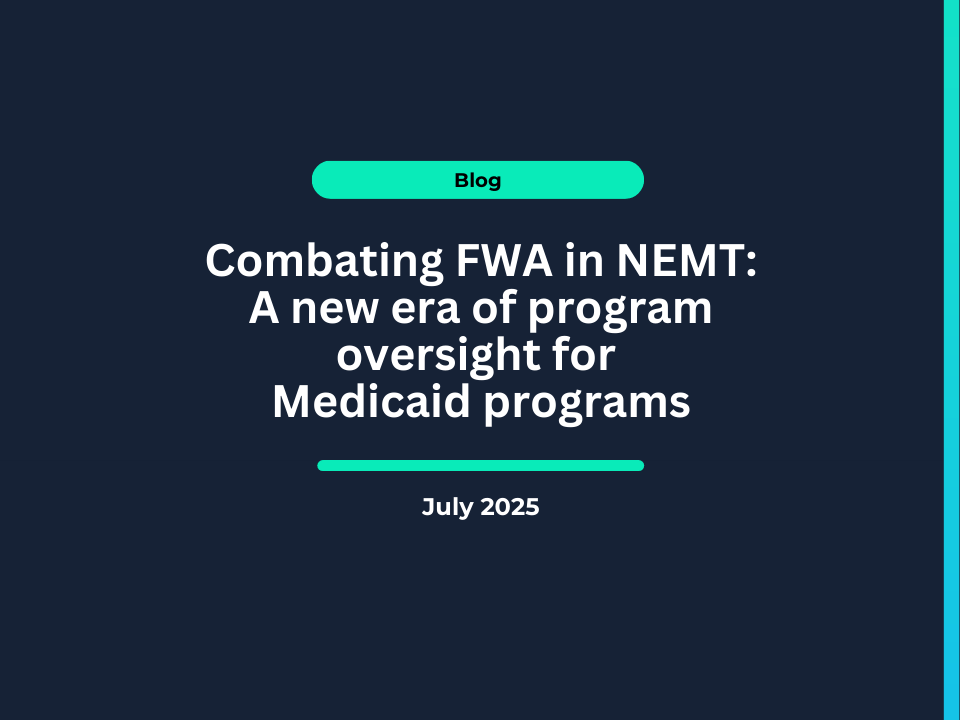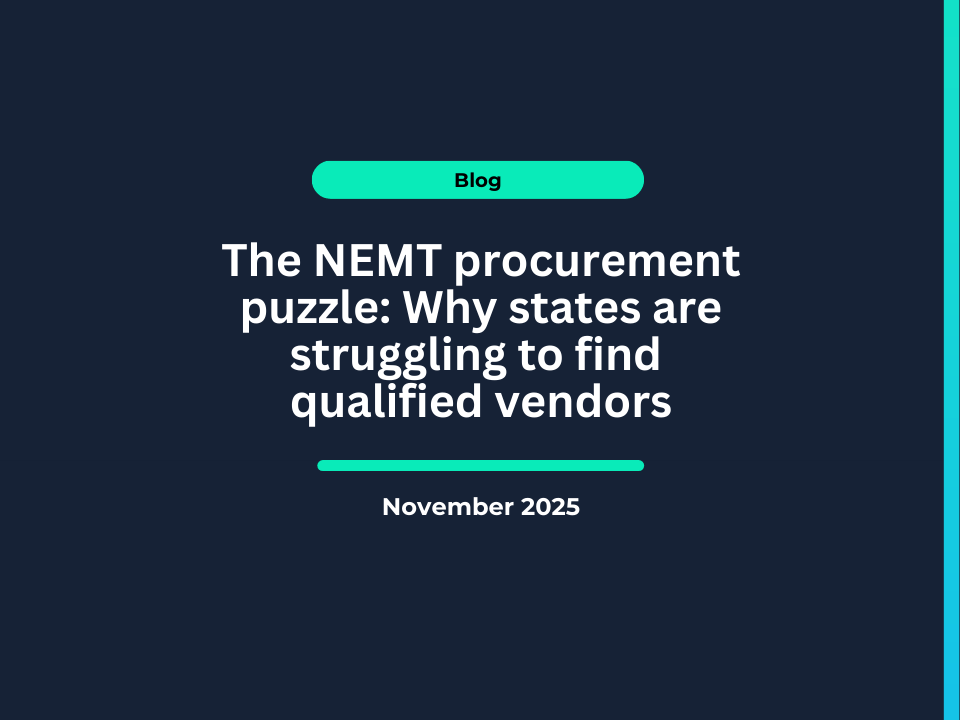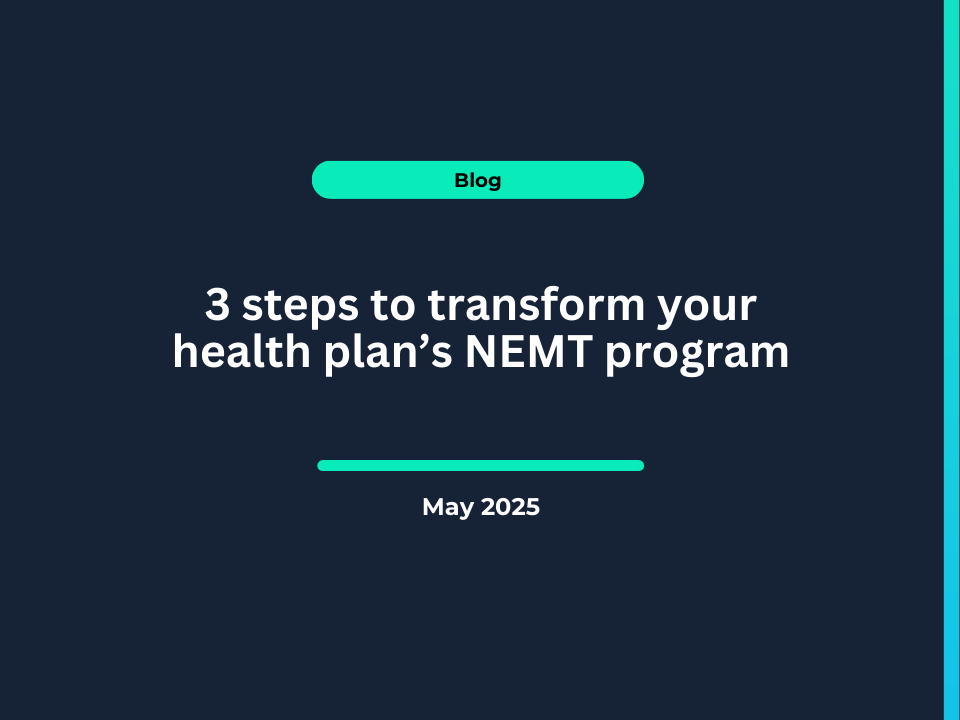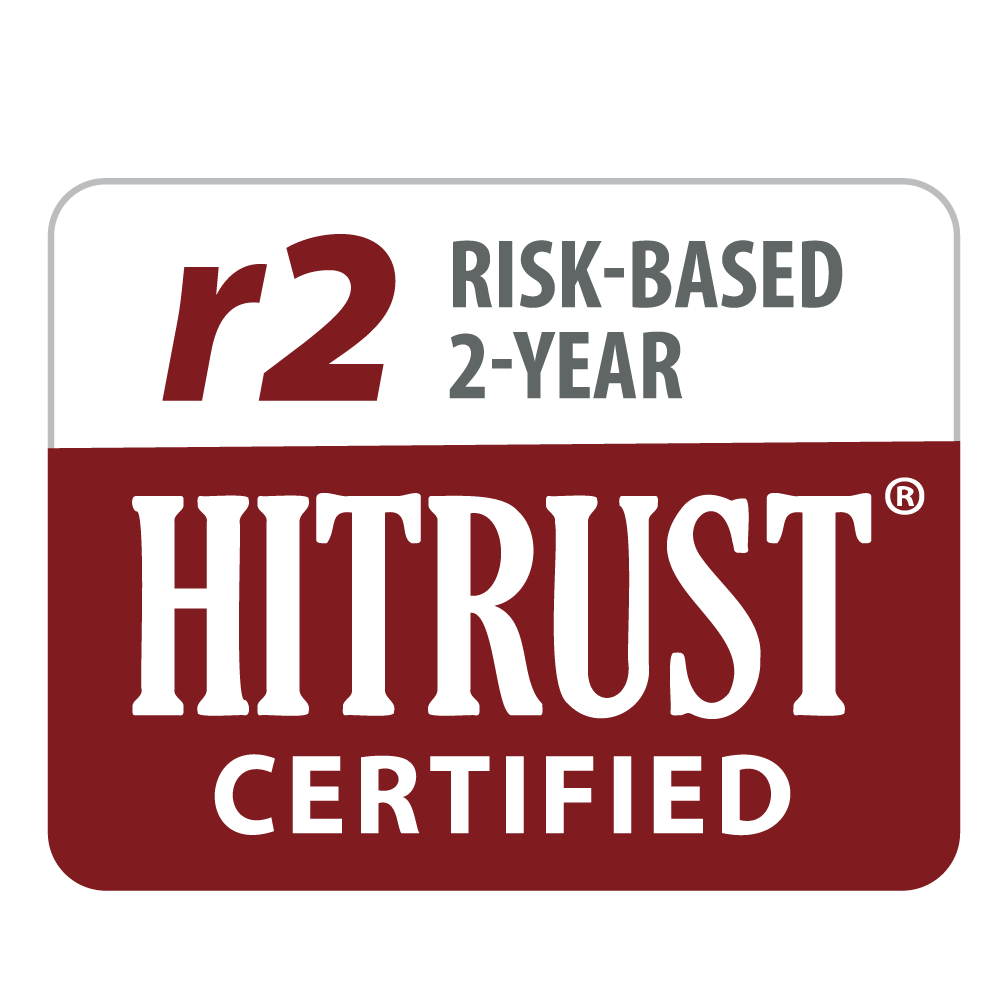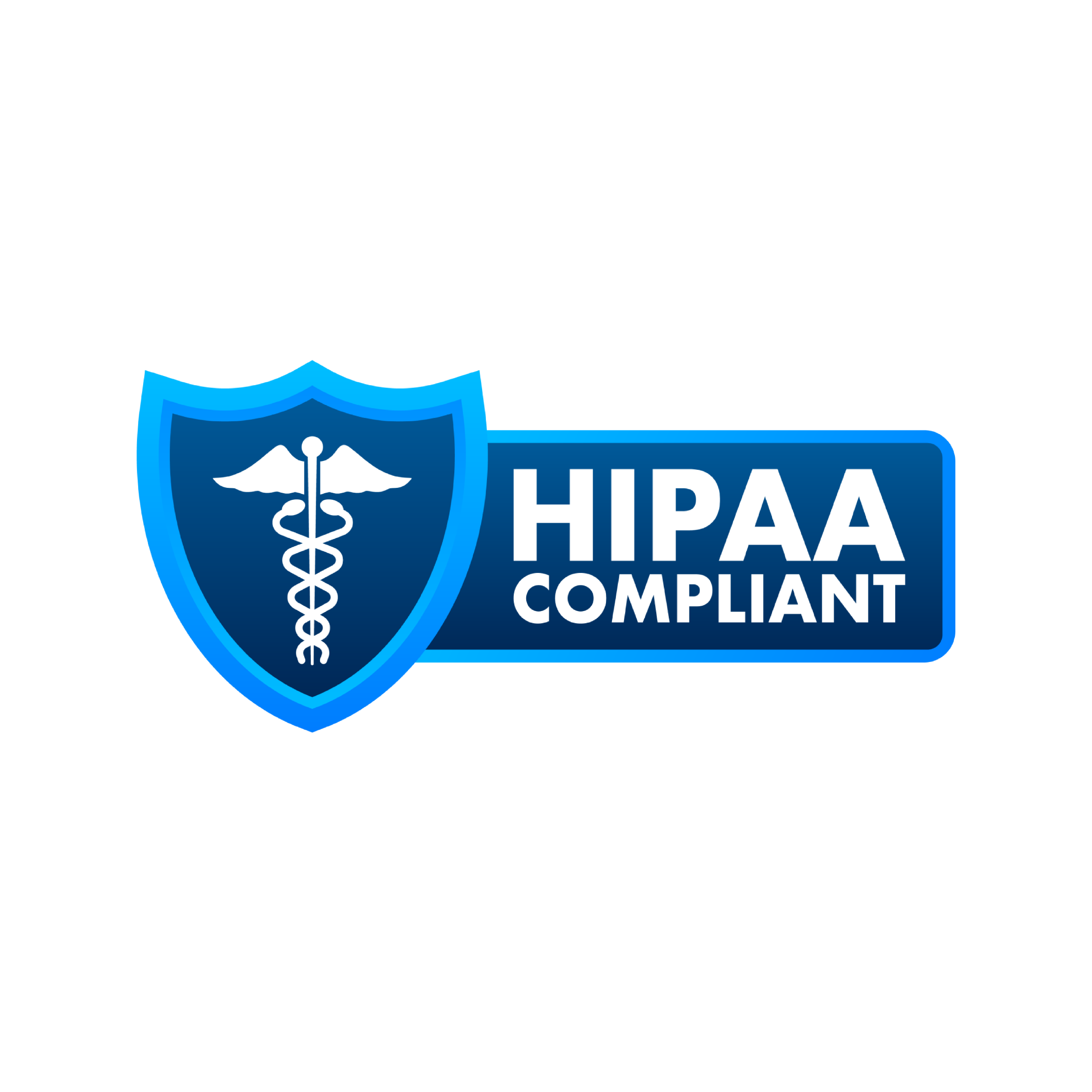Medicaid programs are losing millions to transportation fraud—but the real cost is measured in missed appointments and delayed care for vulnerable populations. Non-emergency medical transportation (NEMT) is a critical Medicaid benefit that ensures members can access healthcare appointments, therapies, and essential care for chronic conditions. However, the NEMT system has been vulnerable to fraud, waste, and abuse (FWA)—jeopardizing trust, driving up costs, and undermining care delivery.
The Scope of the Problem of FWA in NEMT
Federal audits reveal staggering losses. States like New York, Indiana, and Massachusetts have each lost millions to improper or non-compliant payments within Medicaid-funded NEMT programs. Common types of FWA include:
-
Fraud takes many forms:
-
Billing for trips that never happened
-
Inflating mileage
-
Paying kickbacks
-
-
Waste drains resources through:
-
Assigning a member to a higher level of service than required based on their need
-
Scheduling individual trips instead of multi-loading
-
Transporting ineligible members
-
-
Abuse undermines the system when:
-
Members request transportation to non-medically necessary services, misrepresented as medical appointments.
-
Drivers taking members to locations that are not for healthcare needs but billing it as a Medicaid-covered trip.
-
These actions drive up costs and limit access for those with genuine medical needs.
-
Why NEMT Programs Remain Vulnerable: Several systemic issues enable ongoing fraud, waste, and abuse
-
Limited visibility without a digitized ecosystem and real-time trip tracking, program oversight is reactionary and auditors can't verify if services were actually delivered.
-
Fragmented systems and data silos across brokers, health plans, and providers create accountability gaps. This prevents proactive fraud detection and enforcement as no entity has the complete picture.
-
Manual processes and paper-based billing create opportunities for manipulation and human errors.
The Impact of NEMT FWA on Medicaid
Beyond financial loss, FWA damages the integrity of Medicaid programs, delays care for members, and diverts resources from those who need it. For Managed Care Organizations (MCOs) and state Medicaid agencies, FWA increases administrative overhead and puts compliance at risk, often resulting in penalties.
Technology: The Game-Changer for NEMT Integrity Lowering FWA starts with digitization of the entire NEMT workflow. Digitized infrastructures like Kinetik reduce risk of fraud, waste, and abuse through interoperability. By connecting all stakeholders in a closed loop ecosystem, source data is shared and program transparency is achieved. Here's how technology can help:
-
Real-time trip tracking ensures every ride is GPS-tracked from dispatch to drop-off, creating an auditable digital trail that makes phantom billing impossible.
-
Trusted Program Data, On-Demand offers health instant visibility into utilization patterns, flagging anomalies before claims are paid.
-
Electronic claim submissions eliminate manual errors and reduce duplicate billing.
-
Built-in compliance workflows flag suspicious patterns before claims are approved.
How a Medicaid Health Plan Lowered Fraud and Waste
A Medicaid health plan in Northern California faced major challenges due to limited visibility into its transportation program, administered by a third-party broker. Key program data such as GPS tracking, utilization, and performance metrics took weeks to receive. This prevented the plan from optimizing operations, addressing member complaints, and detecting fraud, waste, and abuse. Without trusted and timely data, the health plan could not control costs or improve performance. Furthermore, complex billing systems compounded the problem, delaying provider reimbursements by up to 90 days threatening network sustainability.
Many high-performing transportation providers opted out of contracts due to unfavorable terms, leading to a shrinking network, unacceptable ride fulfillment rates, and declining member satisfaction. Even as the health plan worked to meet state mandates delays from the broker hindered progress. The result: decreased utilization, growing dissatisfaction and urgent demand for greater control, data transparency, and collaboration in NEMT delivery.
Kinetik helped the health plan overcome these challenges by delivering real-time visibility and control across its transportation program. Through features like automated real-time eligibility verification, trip validation, GPS tracking, and advanced analytics, the platform enabled the plan to proactively monitor provider performance, validate trips in real time, and quickly detect signs of fraud, waste, or abuse—such as duplicate rides or unauthorized usage. With trusted, timely data at their fingertips, the health plan regained oversight, reduced risk, and laid the foundation for a more accountable and effective NEMT benefit.
Building a Fraud-Resistant Future
By shifting away from opaque, broker-led models to tech-enabled infrastructure, health plans can reduce the risks for fraud, waste, and abuse while improving operational efficiency and member satisfaction. Early adopters of modern NEMT platforms have benefitted from reduced claim errors, faster reimbursements, and fewer member complaints.
The Path Forward
Fraud and waste is a persistent challenge in Medicaid transportation, but it doesn't have to be. With proper technology and oversight, health plans can protect their budgets while guaranteeing reliable access to care. The question isn’t whether to modernize NEMT programs—it’s how quickly you can make the change. Every day that passes means more lost dollars and missed appointments. It’s time to turn the tide toward transparency, trust, and accountability.
Ready to reduce fraud, waste, and abuse in your NEMT program? Contact us to learn how we can help your organization.
